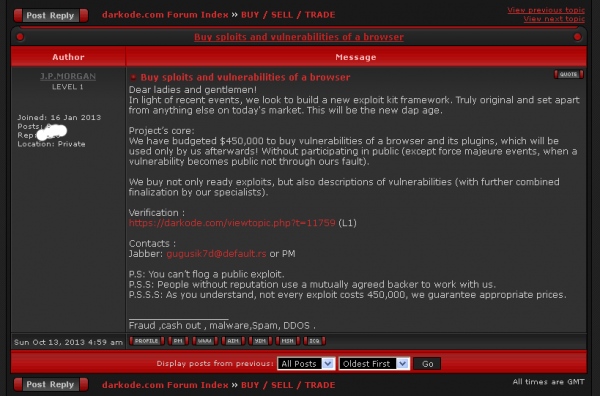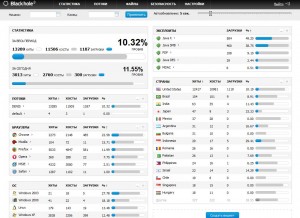By
Fare la Volpe

Welcome back to the cheaters, rapscallions, and assorted flim-flammers
alike. It’s time once more for the Snake Oil Bulletin! This week we have
a double dose of dumb-dumbs being extra diddly-dumb about vaccines. Do
vaccines cause autism? Still nope! But that hasn’t stopped these
intrepid idjits from spreading their lethal brand of nonsense all over
this great land of ours. Let’s start off the Bulletin with a feel-good
story about people finally calling out those anti-vaxxing booger
weasels.
It’s a Christmas miracle! Tribeca decides not to listen to anti-vaxxing charlatan after all!
After facing a blistering round of criticism from anyone with a
brain, the Tribeca Film Festival has canceled the screening of a film
that claims vaccines cause autism and the CDC is covering it up.
The film in question,
Vaxxed: From Cover-Up to Catastrophe,
is written and directed by everyone’s favorite charlatan Andrew
Wakefield. If that name sounds familiar, it’s because Wakefield was the
original liar who lied in his fake study that purported to show a
made-up connection between vaccines and autism. Y’know what, let’s have
Joe Hanson of the fabulous PBS series
It’s Okay To Be Smart summarize Wakefield’s faux-dentials by adjusting Tribeca’s official description of the flim-flammer:

In a nutshell, Wakefield fraudulently created a study that purported
to show a link between the MMR vaccine and autism. He did this by
manipulating data, violating ethical standards of medicine, and
sometimes just outright lying. He did this because he was being paid by a
law firm that was attempting a class action suit against a vaccine
manufacturer, and because Wakefield himself had recently bought stock in
a competing MMR vaccine. Wakefield was eventually found out, had his
study retracted, and had his license to practice medicine revoked. He’s
spent the last few years portraying himself as a martyr to any who would
listen, and since this is anti-vaxxers we’re talking about, listen they
did. Now Wakefield has gotten into movies, like all great hacks whose
work can’t make it into scientific journals.
The claim of the film is the same that Wakefield has been touting on
the very lucrative anti-vaccine lecture circuit for the past few years:
Wakefield claims the CDC is engaged in a concentrated cover-up of
research conducted by supposed whistleblowers Brian Hooker and William
Thompson. Wakefield says Thompson has documents proving the CDC
deliberately suppressed data in a study that was supposed to test autism
rates in the Atlanta area. As veteran quack-debunker Orac
explains
at Respectful Insolence, Thompson’s and Hooker’s claims of malfeasance
seem to indicate less “cover-up” and more “bad science rejected by peer
review.”
Nevertheless, despite
even TIME Magazine calling bull
on Wakefield’s latest raison d’etre, the pompous ass decided to make a
film out of his claims, because movies don’t need any of that silly
“peer review” process — just a handicam and enough money to purchase an
editor off Fiverr.
The
Vaxxed film got the attention of the Tribeca Film
Festival’s co-founder, actor/director/your dad’s shifty friend from
middle school Robert De Niro.
In a statement responding to complaints about the film’s inclusion in the festival, De Niro said:
Grace [De Niro’s wife] and I have a child with autism and
we believe it is critical that all of the issues surrounding the causes
of autism be openly discussed and examined. In the 15 years since the
Tribeca Film Festival was founded, I have never asked for a film to be
screened or gotten involved in the programming. However this is very
personal to me and my family and I want there to be a discussion, which
is why we will be screening VAXXED. I am not personally endorsing the
film, nor am I anti-vaccination; I am only providing the opportunity for
a conversation around the issue.
The best way to have any discussion is to have one side equipped with
facts while the other side has a bunch of made-up lies that carry equal
weight. That’s what Fox News calls “fair and balanced.”
De Niro himself pushed for the film to be included in the festival’s lineup, and the reaction was swift.
Legitimate scientists and journalists implored the board to remove the film. Filmmaker Peggy Lane
called out Wakefield for being a proven fraud, and claimed that including
Vaxxed in the Tribeca lineup threatened the credibility of not just the festival but all the festival’s other
tales of gay cowboys eating puddinghard-hitting pieces of cinema.
Twitter relentlessly mocked the festival
with the hashtag #FutureTribecaDocumentary, which imagined other
idiotic, agenda-driven films like “‘Shutting that whole thing down’: How
Todd Akin revolutionized the field of reproductive health biology.”
Finally, after mounting pressure and threats of boycotts,
De Niro himself issued a retraction:
My intent in screening this film was to provide an
opportunity for conversation around an issue that is deeply personal to
me and my family. But after reviewing it over the past few days with the
Tribeca Film Festival team and others from the scientific community, we
do not believe it contributes to or furthers the discussion I had hoped
for.
Naturally, Wakefield et al.
are claiming censorship,
a word that people still don’t seem to “get.” Censorship means that the
government is purposely silencing your message. What happened here is
that a private group decided not to give Wakefield a gallon of their own
kerosene when they saw he’d come equipped with matches. You do not have
a right to burn down a building, and you do not have a right to spread
malicious lies about autistic people and the medicine that has saved so
many children from deadly diseases. It’s because of people like
Wakefield that deadly diseases have made a comeback, and
scientists can now make a causal link between the rise of Wakefield’s anti-vaxxers and the increase in whooping cough and
measles.
Go try out your matches on your film reel, Andrew. Now you’ll have lots of free time on your
Conspira-Sea cruise lines. You can torch the negatives in between lectures on crop circles and chemtrails, because that is where you actually work now.
Guns don’t kill people, People Magazine kills people
You know what’s the hottest look for summer? Malnourished babies! Or
at least that seems to be the editorial decision of long-running health
and nutrition journal
People Magazine, who featured on their
website a recipe for homemade baby formula that will kinda sorta kill
babies. It must have been rejected idea for finally dropping that baby
weight.
As part of the book tour for her new autobiography,
Balancing in Heels, apparently famous person Kristin Cavallari (it’s okay, we’ve never heard of her either)
shared some great parenting insights with
People, insights she no doubt gained from being an
amateur immunologist
and professional wife of a sportsball person named Jay Cutler, which is
a career now we guess? Okay, sure. If dog psychic is a real career then
bridal lump can be too.
Cavallari offered her formula for homemade baby formula made of
goat’s milk in the magazine’s “Great Ideas” section. Hold your giggles.
According to
People, Cavallari says her children have
sensitivities to cow’s milk and thus she feeds them a formula of goat
milk, cod-liver oil, and organic maple syrup. Nothing babies (and baby
parents) love more than an oil expressly taken to make children barf.
People published the recipe for Cavallari’s formula, but
added a disclaimer at the end that, oh, BTW, this could super kill your
baby. Drink responsibly!
The American Academy of Pediatrics recommends feeding
infants breast milk or iron-fortified infant formula. Cow’s milk, raw
goat’s milk and soy milk are not recommended during the first 12 months
of life.
“Why would you want to use an alternative formula when there are well
tested and tried formulas widely available?” Dr. Mark Corkins, a
pediatric gastroenterologist and member of the American Academy of
Pediatrics, tells PEOPLE. “These cocktail formulas do not have the
fortification of the vitamins and minerals that the standard formulas
have. Commercial formulas are some of the most highly regulated foods
with strict nutritional standards that the companies have to meet for
the FDA.”
That actual doctor person saying quite clearly that you should not feed your baby goat’s milk didn’t stop
People
from publishing Cavallari’s recipe in full, with the thought process no
doubt not extending beyond “if we put a disclaimer on it, no one’s
going to actually use it, right?” It’s the same thinking behind
publishing the schematics to a pipe bomb and putting a big red sticker
on the book that says “Don’t build this if you’re a terrorist please
thx.” Anna Merlan of Jezebel went one step further by pointing out that,
according to the journal Pediatrics,
babies who are fed exclusively goat’s milk suffer from a rash of health
problems such as metabolic acidosis and anaphylactic shock. We’ve no
doubt that Ms. Cavallari would rather you use a
natural alternative for that anaphylaxis instead of using a gross Epipen.
After someone on the janitorial staff (we bet) told the editors at
People that this was a stupid thing to publish,
People
quietly retracted the story from their website, saving all the children
whose parents read the awful article. Now the only place they can find
the anaphylactic formula recipe is on internet archives and in
Cavallari’s book,
now available on Kindle! And with stellar reviews like these, how could anything go wrong?
“I am obsessed with Kristin Cavallari. Not only is
‘Balancing In Heels’ such a fun read―her wellness, beauty, and parenting
advice is perfect for all super mommas!”― Molly Sims
Super.





























